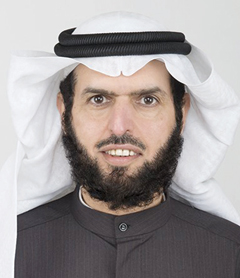
KUWAIT: Head of the National Assembly's human rights committee MP Adel Al-Damkhi called the suicide of a young stateless or bedoon man as alarming and dangerous and called for a probe to prevent this from happening again. Twenty-year-old Ayed Hamad Medath was found hanging in his room on Sunday after he was reportedly fired from his job because the government agency responsible for bedoons refused to renew his special security ID. He was buried yesterday.
His death stirred strong reactions on social media from rights activists and Kuwaiti citizens, who demanded a quick solution for the plight of over 120,000 bedoons living in Kuwait. Damkhi expressed sorrow over the incident, describing the suicide as a "tragedy" and called for probing the issue. The lawmaker said the Assembly's human rights panel discussed the issue of suicide or attempted suicide incidents among bedoons and the panel found it was rising, adding that "we found pain, sufferings and misery" among bedoons in every aspect of life. He added the official body overseeing bedoons had attributed this to reasons other than their plight.
Damkhi recalled that the committee approved a draft law for civil rights for bedoons, but the committee came under fire because of the bill, which was deliberately mixed up with naturalization, adding the draft law only deals with basic human rights. "Even if we accept that the forefathers of the bedoons were wrong, how should we deal with the current generation who should be enjoying humanitarian and civil rights?" Damkhi asked. He strongly criticized the central committee for bedoons for fighting bedoons in every aspect of their lives and depriving them from leading a decent life.
Meanwhile, the court of appeals yesterday upheld a five-year jail term against prominent Shiite cleric Hussein Al-Maatouq and another person for giving shelter illegally to members of a pro-Hezbollah cell which was busted by police. While police were searching for the suspects, who were eventually convicted and sentenced to various jail terms, the defendant along with others provided them with shelter. The verdict is not final as the suspect can appeal to the court of cassation, the highest court in the country.
By B Izzak










